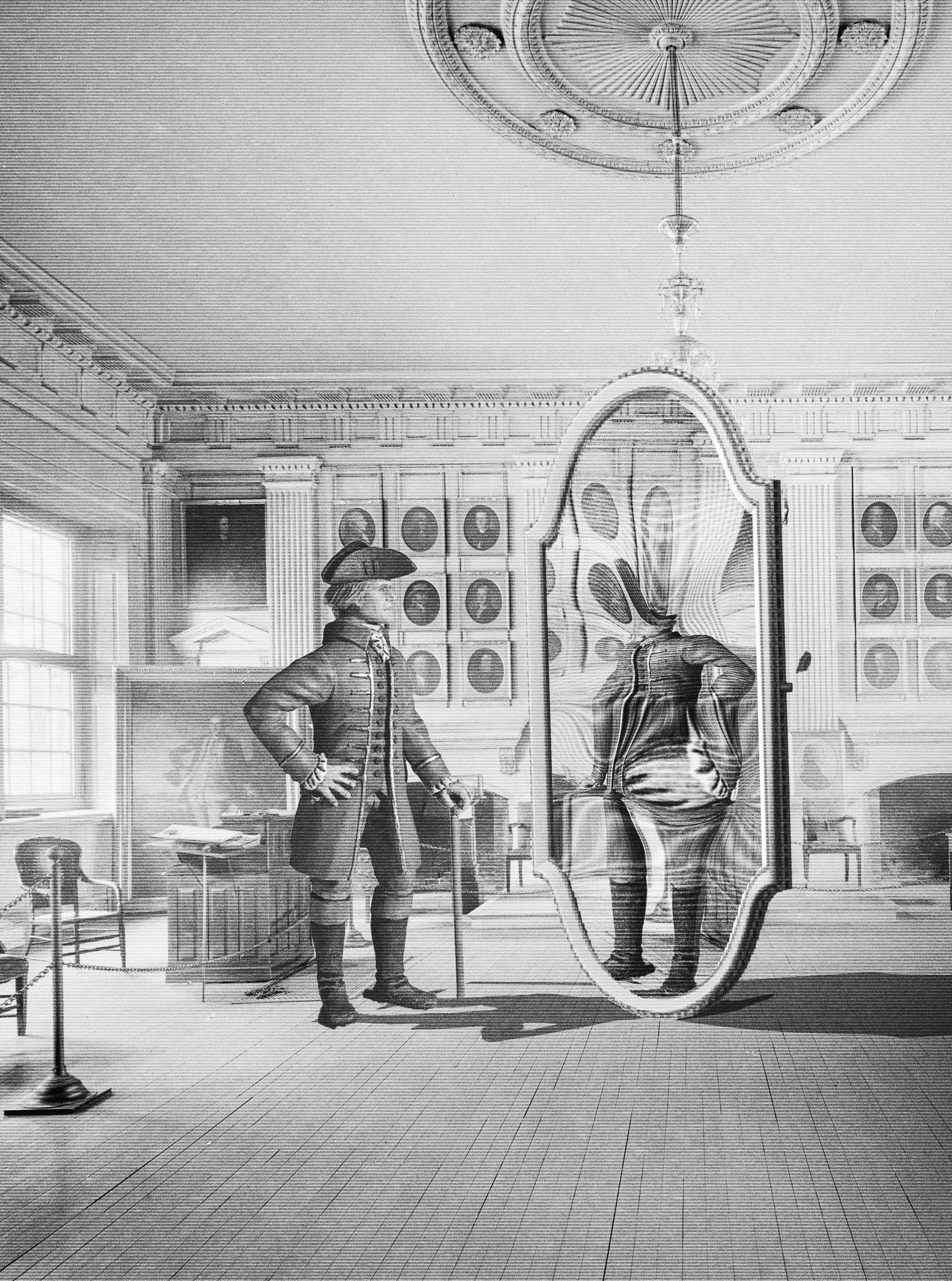Poging GOUD - Vrij
WHAT THE FOUNDERS WOULD SAY NO W
The Atlantic
|November 2025
They might be surprised that the republic exists at all.

When the American republic was founded, the Earth was no more than 75,000 years old. No contemporary thinker imagined it could possibly be older. Thus Thomas Jefferson was confident that woolly mammoths must still live in “the northern and western parts of America,” places that “still remain in their aboriginal state, unexplored and undisturbed by us.”
The idea that mammoths or any other kind of creature might have ceased to exist was, to him, inconceivable. “Such is the economy of nature,” he wrote in Notes on the State of Virginia, “that no instance can be produced of her having permitted any one race of her animals to become extinct; of her having formed any link in her great work so weak as to be broken.”
Those illusory behemoths roaming out there somewhere beyond the Rockies remind us that the world of the Founding Fathers is in some ways as alien to us as ours would be to them. A distance of two and a half centuries is too long for us to be able to fully inhabit their universe, but not long enough for us to be capable of viewing them disinterestedly or dispassionately. In trying to imagine how they would perceive the state of their republic in 2025, the risk is that we invent our own versions of Jefferson's nonexistent beasts. The originalist fallacy that dominates the current Supreme Court—the pretense that it is possible to read the minds of the Founders and discern what they “really” meant—in fact turns the Founders into ventriloquists’ dummies. We express our own prejudices by moving their lips.
Dit verhaal komt uit de November 2025-editie van The Atlantic.
Abonneer u op Magzter GOLD voor toegang tot duizenden zorgvuldig samengestelde premiumverhalen en meer dan 9000 tijdschriften en kranten.
Bent u al abonnee? Aanmelden
MEER VERHALEN VAN The Atlantic
The Atlantic
THE BEACON OF DEMOCRACY GOES DARK
For nearly 250 years, America promoted freedom and equality abroad, even when it failed to live up to those ideals itself. Not anymore.
8 mins
November 2025

The Atlantic
WHOSE INDEPENDENCE?
The question of what Jefferson meant by \"all men\" has defined American law and politics for too long.
15 mins
November 2025
The Atlantic
WE HOLD THESE TURKEYS TO BE DELICIOUS
When John Adams arrived in Philadelphia for the First Continental Congress, he immediately went out to eat.
5 mins
November 2025

The Atlantic
AMERICA'S MOST FAMOUS NAP
How “Rip Van Winkle” became our founding folktale
11 mins
November 2025

The Atlantic
THE MANY LIVES OF ELIZA SCHUYLER
She lived for 97 years. Only 24 of them were with Alexander Hamilton.
17 mins
November 2025

The Atlantic
THE MORAL FOUNDATION OF AMERICA
The idea that everyone has intrinsic rights to life and liberty was a radical break with millennia of human history. It's worth preserving.
5 mins
November 2025

The Atlantic
THE NIGHTMARE OF DESPOTISM
Hamilton feared the mob. Jefferson warned against unchecked elites. But both thought that the republic could fall.
11 mins
November 2025

The Atlantic
THE 27TH GRIEVANCE
How Native nations shaped the Revolution
9 mins
November 2025

The Atlantic
LINCOLN'S REVOLUTION
How he used America's past to rescue its future
10 mins
November 2025

The Atlantic
DEAR SON
How the revolution tore apart the Franklin family
19 mins
November 2025
Listen
Translate
Change font size
